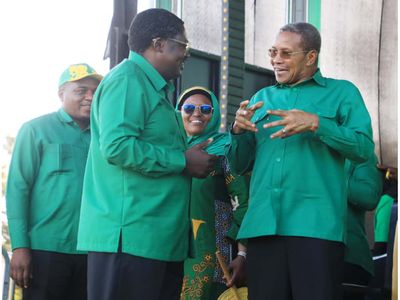By Paul Mamattah
The Africa Coalition for Academic Freedom (ACAF) has organised a capacity-building training workshop in Accra for University students aimed at empowering student leaders in Ghana to understand and defend their academic rights within the university and tertiary education space.
The workshop, themed “Students’ Rights to Academic Freedom in Africa”, brought together student leaders from major national student bodies including the National Union of Ghana Students (NUGS), the Graduate Students Association of Ghana (GRASAG), the Ghana Union of Professional Students (GUPS), the Ghana National Union of Technical Students (GNUTS), the Private University Students Association of Ghana (PUSAG), and the National Health Students Association of Ghana (NAHSAG).
The primary objective of the training was to emphasize the critical role students play in the academic community, underscoring the importance of safeguarding their rights to academic freedom.
Participants were reminded that, as key stakeholders in the educational ecosystem, their freedoms must not be sidelined or denied recognition.
Key topics covered during the workshop included “Academic Freedom and Its Importance, and “The Link Between Academic Freedom, Freedom of Expression, and Students’ Rights on Campus.”
Participants were also taken through sessions on “Identifying Threats to Academic Freedom and How Students Can Respond Legally”, as well as “Strategies for Effective Advocacy” and “Building Student-led Advocacy Campaigns.”
The training sought to deepen students’ understanding of their rights, equip them with tools to identify and respond to infringements, and encourage active participation in advocating for an enabling academic environment.
Addressing the media after the training, the Regional Director of the Africa Coalition for Academic Freedom (ACAF), Professor Appiagyei-Atua, called for a more robust recognition and protection of students’ academic freedom in Ghana and across the African continent.
He emphasized that students, as integral members of the academic community, are entitled to specific rights most notably, academic freedom in addition to the general civic rights enjoyed by all citizens and residents enshrined in the constitution.
“Students’ academic freedom is shaped by their relationship with three key actors including the state, the university, and academic staff. Each relationship carries distinct rights and responsibilities.”
“With the state, students are entitled to expect support structures such as libraries, modern equipment, and adequate infrastructure to facilitate learning and research.” he noted.
Professor Appiagyei-Atua further observed that while many African constitutions formally recognise academic freedom, student participation in university governance remains largely symbolic.
“Students may hold seats on university councils and boards, but their input rarely influences final decisions,” Professor Appiagyei-Atua, urging for a shift toward meaningful engagement in policymaking.
He expressed concern over the damaging influence of partisan politics in student affairs, citing groups such as Tertiary Students Confederacy (TESCON), the student wing of the New Patriotic Party and the Tertiary Education Institutions Network (TEIN), the student wing of the National Democratic Congress.
“These bodies tend to prioritize the interests of their respective parties over student welfare. Likewise, the independence of other student organizations like the SRC, GRASAG, and NUGS is compromised by political interference.” He cautioned.
In the academic setting, Professor Appiagyei-Atua highlighted another critical concern saying the undervaluing of students as knowledge contributors.
“Many lecturers see students as passive recipients rather than active participants in knowledge production. This not only stifles intellectual growth but also discourages students from asserting their rights.” Professor Appiagyei-Atua said.
He also stressed that token representation, political manipulation, and rigid academic hierarchies together obstruct students’ ability to fully enjoy and advocate for their academic freedoms.
The workshop is part of a wider continental effort to build resilience among student communities and to foster a culture where academic freedom is respected, protected, and promoted as a fundamental principle of higher education in Africa.
The post ACAF trains students on their academic rights appeared first on The Herald ghana.



